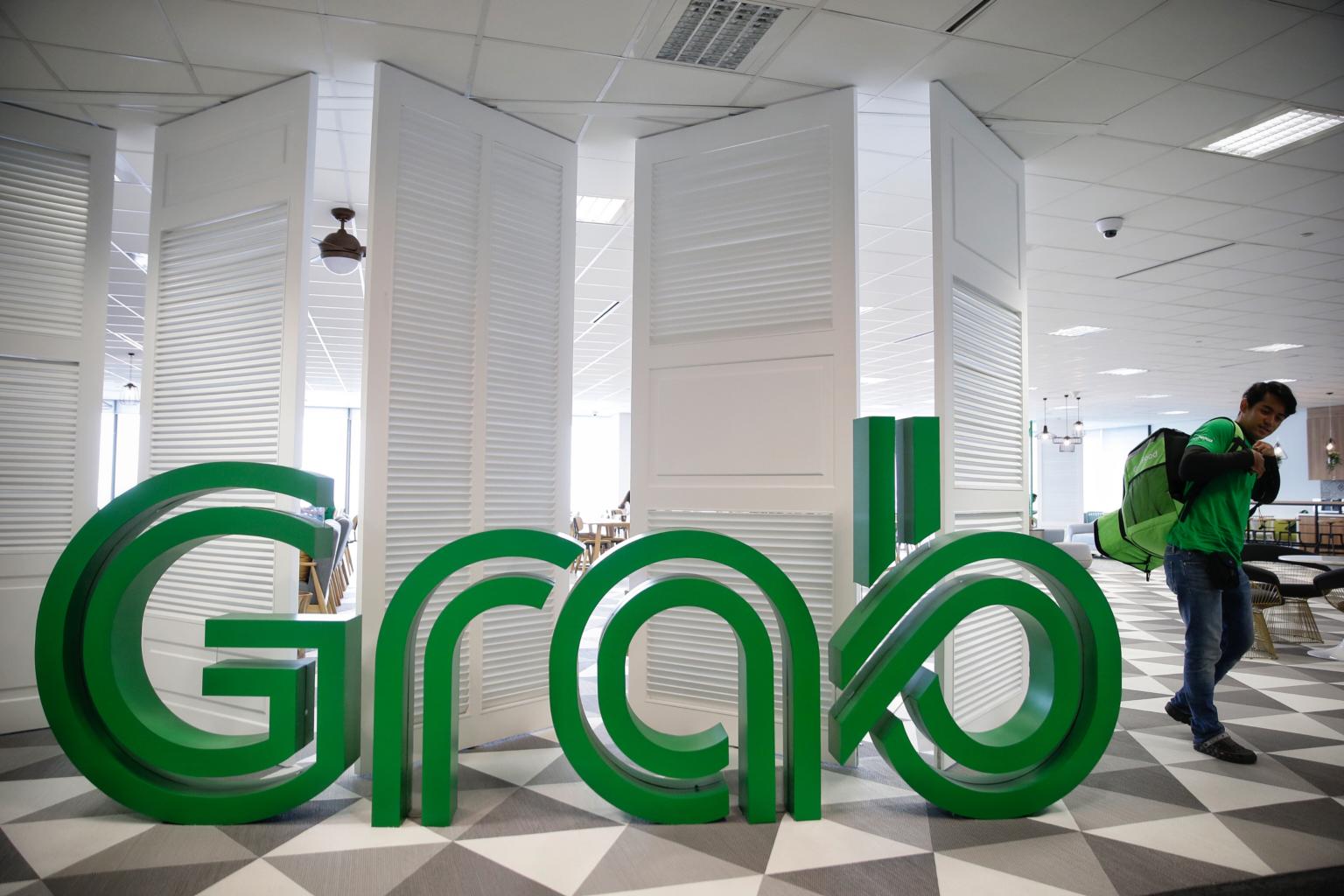Grab's loss swells to $1.5 billion in Q4; shares lose nearly $30 billion since listing
Sign up now: Get ST's newsletters delivered to your inbox

Grab has racked up losses since its founding and has yet to prove it can reach profitability.
PHOTO: ST FILE
SINGAPORE (BLOOMBERG, REUTERS) - Grab Holdings, South-east Asia's No. 1 ride-hailing and delivery company, reported a loss that almost doubled from a year ago after it spent more on incentives to lure drivers and customers as the pandemic eased.
The Singapore-based firm's fourth-quarter net loss swelled to US$1.1 billion (S$1.5 billion) from US$635 million, also hurt by non-cash interest costs and expenses related to its public listing, it said on Thursday (March 3). Analysts estimated a loss of US$645 million on average.
Revenue for the quarter ended Dec 31 fell 44 per cent to US$122 million, affected by the incentives offered to users and drivers.
Grab - which counts SoftBank Group and Uber Technologies as its two biggest shareholders - has struggled to gain a steady footing since it became a publicly listed company in the United States through a US$40 billion merger with a blank-cheque company in December.
Grab shares plunged 37 per cent on Thursday after posting its results, its biggest sell-off ever, as roughly 115 million shares changed hands, more than four times the average over the past month.
Since its debut, the stock has sunk 63 per cent, placing it among the Nasdaq Composite Index’s worst performers over that stretch. The tailspin has wiped out US$22 billion (S$29.85 billion) from Grab's market capitalisation.
It was also the worst performer in the De-Spac Index on Thursday as the basket of former special-purpose acquisition companies dropped 5.4 per cent to a record low.
Grab has racked up losses since its founding and has yet to prove it can reach profitability. Its fortunes have ebbed and flowed along with Covid-19 infection rates and restrictions, which affect demand for rides and meal deliveries.
In all of 2021, its loss widened to US$3.4 billion from US$2.6 billion the previous year. Gross merchandise value (GMV), the sum of transactions across its platforms, totalled US$16.1 billion compared with its projection of US$15 billion to US$15.5 billion.
As the pandemic has weighed on ride-hailing demand, Grab has expanded its food delivery business to drive user growth. The online grocery market in South-east Asia is expected to almost triple to US$11.9 billion in 2025 from US$4.1 billion in 2020, according to Euromonitor International.
But while spending by customers on Grab's platform is increasing, the growth is not yet translating to earnings.
Average spend per user - GMV per monthly transaction user - on Grab's platform grew 23 per cent in the fourth quarter from a year earlier. But revenue booked from delivery last quarter was just US$1 million.
Grab deducts incentives that it offers to drivers and consumers from sales, and its quarterly revenue number fluctuates wildly depending on how much it spends on such efforts.
Grab spent US$443.3 million on delivery incentives in the quarter, almost double from a year earlier.
Its total spending on incentives more than doubled to US$583.5 million in the fourth quarter. For 2021 as a whole, incentive spending soared to US$1.78 billion from US$1.24 billion the previous year.
"We did not expect Grab to spend on such huge incentives," LightStream Research analyst Shifara Samsudeen said in a report published on Smartkarma. This implies that the company is "struggling to grow its business and profitability seems like a tall order from Grab".
Grab chief financial officer Peter Oey said in a statement on Thursday: "We plan to be judicious and disciplined in allocating capital, as we double down on the long-term growth opportunities of our on-demand, advertising and financial services businesses."
Grab, founded by Mr Anthony Tan and Ms Tan Hooi Ling, has long been viewed as one of the most promising growth companies in South-east Asia.
But among Grab's challenges is intensifying competition, including from Sea, the region's biggest Internet company. More directly, its Indonesian ride-hailing rival, Gojek, has merged with e-commerce provider PT Tokopedia to become GoTo. The combined entity is preparing for an initial public offering at home and in the US this year.


